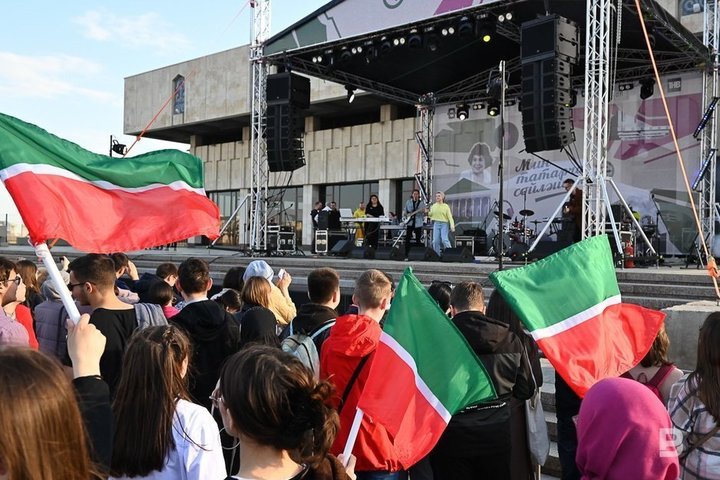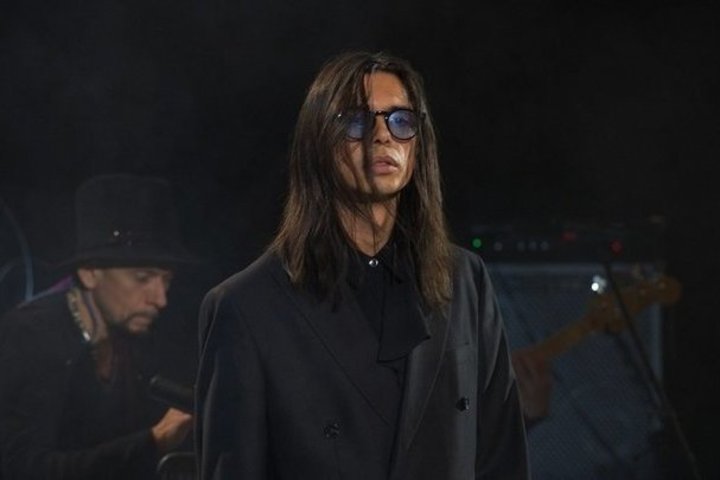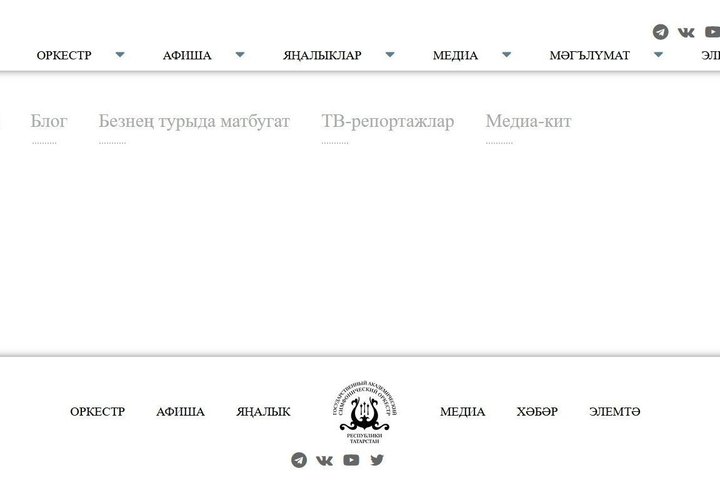Native tongue echoes over Lake Kaban. What about the city?
Mother Language Day has moved to the new Kamal Theatre building.

On April 26, Kazan will host the Min tatarcha seyleshem (“I Speak Tatar”) campaign for the 20th time. This year, like many other April events, it has once again changed its location — this time moving to the new Kamal Theatre building. Our report takes a closer look at how writers, young people, and designers have come together in one place — and explores the impact of the award provocatively titled “Struggling with Tatar.”
First the awards, then poetry, followed by music
Mother Language Day will begin in traditional fashion — with the laying of flowers at two monuments to Gabdulla Tukay: one near the Musa Jalil Opera and Ballet Theatre, and another in the poet’s namesake park. But afterward, the events will shift to a new venue — the recently opened Kamal Theatre building on 74 Khadi Taktash Street.
According to the Tatarstan Ministry of Culture, the change is due to new regulations governing public events. Organising large gatherings near residential areas — whether on Teatralnaya or Baumana Street — has become increasingly difficult. Additionally, as the programme includes a television broadcast, the decision was made to consolidate the main events in a single, more suitable location.
The main stage of the theatre will host the presentation of the Tukay State Prizes. In the Eastern Hall, the children's Tatar theatre studio Apushwill perform “Avyl ete Akbay” (“The Village Dog Akbay”), followed by a musical programme.
Meanwhile, the Universal Hall will feature a live poetry reading and the play “Kazanga Tukay kaytkan” (“Tukay Returns to Kazan”).
Starting at 1 p.m., the “Achyk universitet” (“Open University”) lecture series will be in session.
In the theatre's foyer, a showcase of language-focused projects will take place — initiatives supported by the Commission under the rais of Tatarstan for the Preservation and Development of the Tatar Language and the Native Languages of the Peoples Living in the Republic.
The space will also host the “Yazgy Pechen Bazary” (“Spring Hay Bazaar”). Traditionally a summer design market accompanied by lectures, concerts, and guided tours, this year the event will also take place in April. The initiative came at the suggestion of the World Forum of Tatar Youth, who noted that creators of Tatar-themed products often lack sufficient platforms to reach their audience.
An Open Theatre
Curiously, it was the market that sparked the most controversy on social media. Critics argued that turning a theatre into a marketplace was inappropriate.
“Pechen Bazary is not a typical market, but a festival of Tatar culture and design,” responded Forum Chairman Raynur Khasanov. “You won’t find mass-produced goods from China marked up three or four times. This is a design market — each participant, each designer is a craftsman, offering handmade items infused with national elements.”
Khasanov also reminded critics that markets had previously been held in the old Kamal Theatre building. Indeed, as far back as 2014, stalls were set up during the World Forum of Tatar Women. Designers showcased their work even at events like “Tuesday Evening”— a youth night featuring three one-act plays.

Among this year’s headliners: the band Gauga — as announced by the World Forum of Tatar Youth.
The traditional poetry celebration, organised by the Writers’ Union of Tatarstan, will begin outdoors at 2:00 p.m. — and for the first time, it will be followed by a concert as part of the “Min tatarcha seyleshem”campaign.
This campaign, dedicated to the native language, first took place in 2006 at the corner of Baumana and Universitetskaya Streets — then still pedestrian-only. Among the early voices of a budding new wave in Tatar music was Ilysiya Badretdin, and performances included songs by the bands Ittifaqand Alkanat.
The event soon moved further down Baumana Street, gathering around the famous city clock, while the lineup of performers rapidly expanded. In 2020, the campaign was held online. It spent the next two years attempting to find footing outside the historic Kamal Theatre, before relocating to the Kazan Kremlin in 2023.
The “Min tatarcha seyleshem” concert will close out a packed programme of events —t his year including a student and schoolchildren’s quest, an artists’ lab, and even a poetry battle between artificial intelligence and human poets.
The concert lineup features bands such as Gauga, Tubatay Beats, K3DERT, and ALTAN, alongside solo acts like Ilgiz, Malsi Music, Aidar Iskhakov, Elina, Al Su, Ayrat Khayrullin, Leyla Khafizova, Malika Yunusova, Guzel Sabirova, and rapper AIGYR.

Does the “Struggling with Tatar” Award influence government bodies?
The media often takes interest in the “Struggling with Tatar” award — a symbolic “anti-prize” established in 2012. It is given to state institutions that fail to adequately use the Tatar language in their operations, despite its official status enshrined in both the Constitution of the Republic and the Law on Languages of the Republic of Tatarstan.
Regrettably, these “awards” have shown limited effect in motivating recipients to change course. Without strong responses from leadership, such gestures remain largely symbolic.
The first recipient of the “Struggling with Tatar” award was the Universiade Directorate, after the World Forum of Tatar Youth (WFTY) found no Tatar-language content in their printed materials or promotional videos. In 2013, the “honour” went to the Electronic Government platform, and by 2014, it was shared among four major cultural institutions: the Tatarstan State Symphony Orchestra, the Musa Dzhalil Opera and Ballet Theatre, the Ekiyat Puppet Theatre, and the Kazan Kremlin.
To be fair, some progress has been made since then. The website of the State Archive of the Republic of Tatarstan (GASO RT) now features a substantial amount of content in Tatar—though its news section remains empty. The Ekiyat site, meanwhile, offers only surface-level translation, with many sections still lacking Tatar content. The opera and ballet theatre’s site also has numerous untranslated pages, and the museum-reserve’s Tatar-language section falters particularly in its news area — where much of the content remains in Russian.
The Struggling with Tatar award has also been handed to the People’s Control system, the Central Election Commission, the Gorky branch of Russian Railways, and the Ministry of Ecology of Tatarstan. Later additions to the blacklist included the Kazan Expo exhibition centre — which curiously offers a Chinese-language page, but no Tatar — Tatstat, Rospotrebnadzor, and the Kremlin Embankment.
In recent years, the anti-leaders have been the IT Park and the prefecture of Stary Gorod —followed by entrepreneurs in the Old Tatar Quarter. The IT Park received the award after failing to include a Tatar-language version of its dedication to Bashir Rameev.
As for the Old Tatar Quarter, the lack of Tatar-language signage and information has become a matter of particular concern — so much so that it was raised during a February meeting between members of the Tatar intelligentsia and Kazan Mayor Ilsur Metshin.
“Regarding the signage — an excellent suggestion,” Metshin responded. “Ahead of the tourist season, we’ll bring the Old Tatar Quarter to the ideal standard you envision. We’re committed to presenting this historic neighbourhood in the form you consider appropriate.”